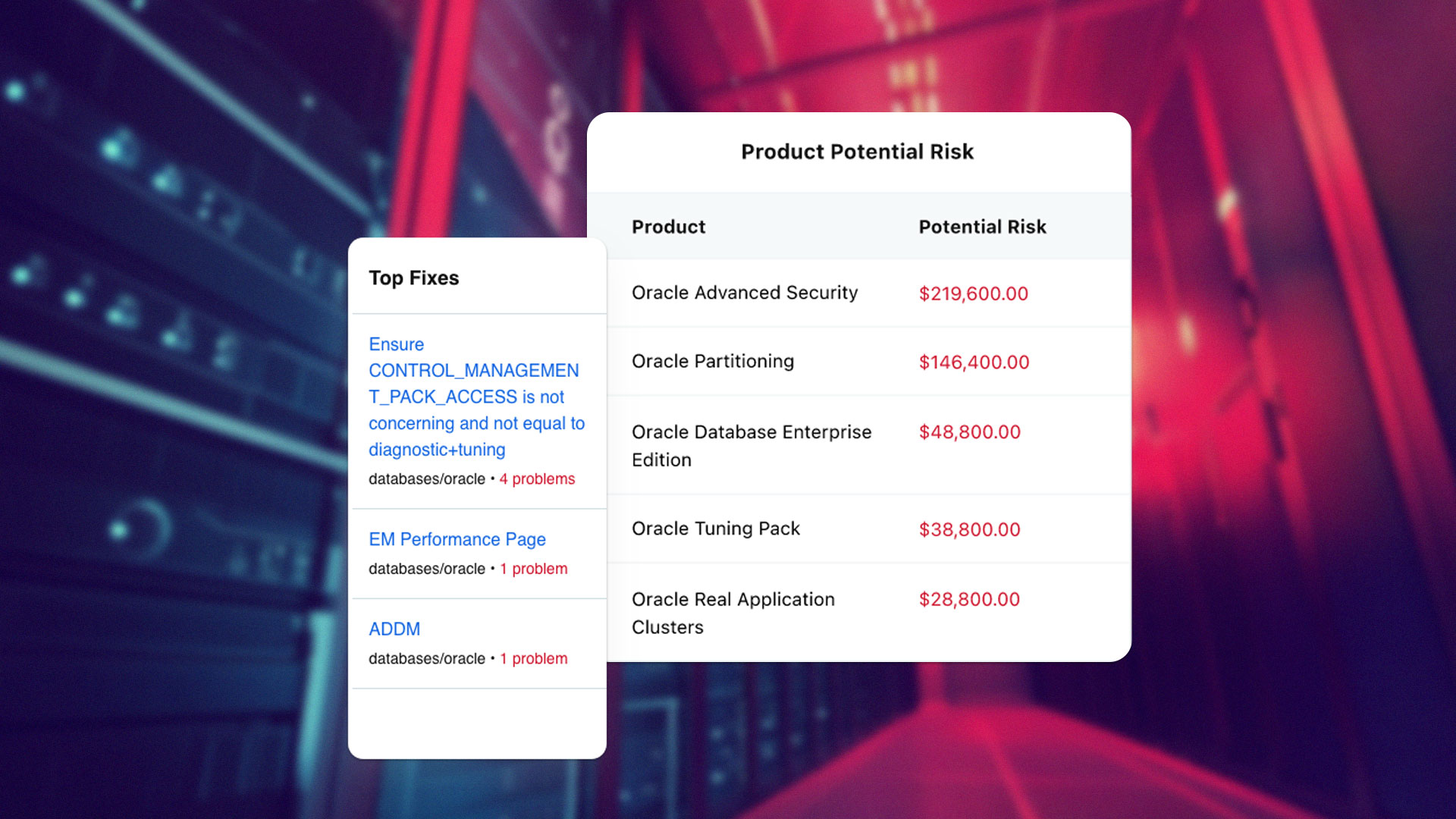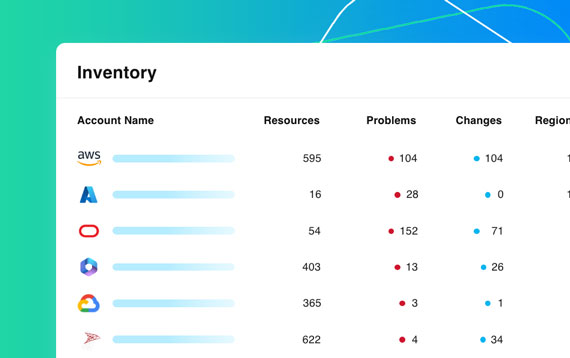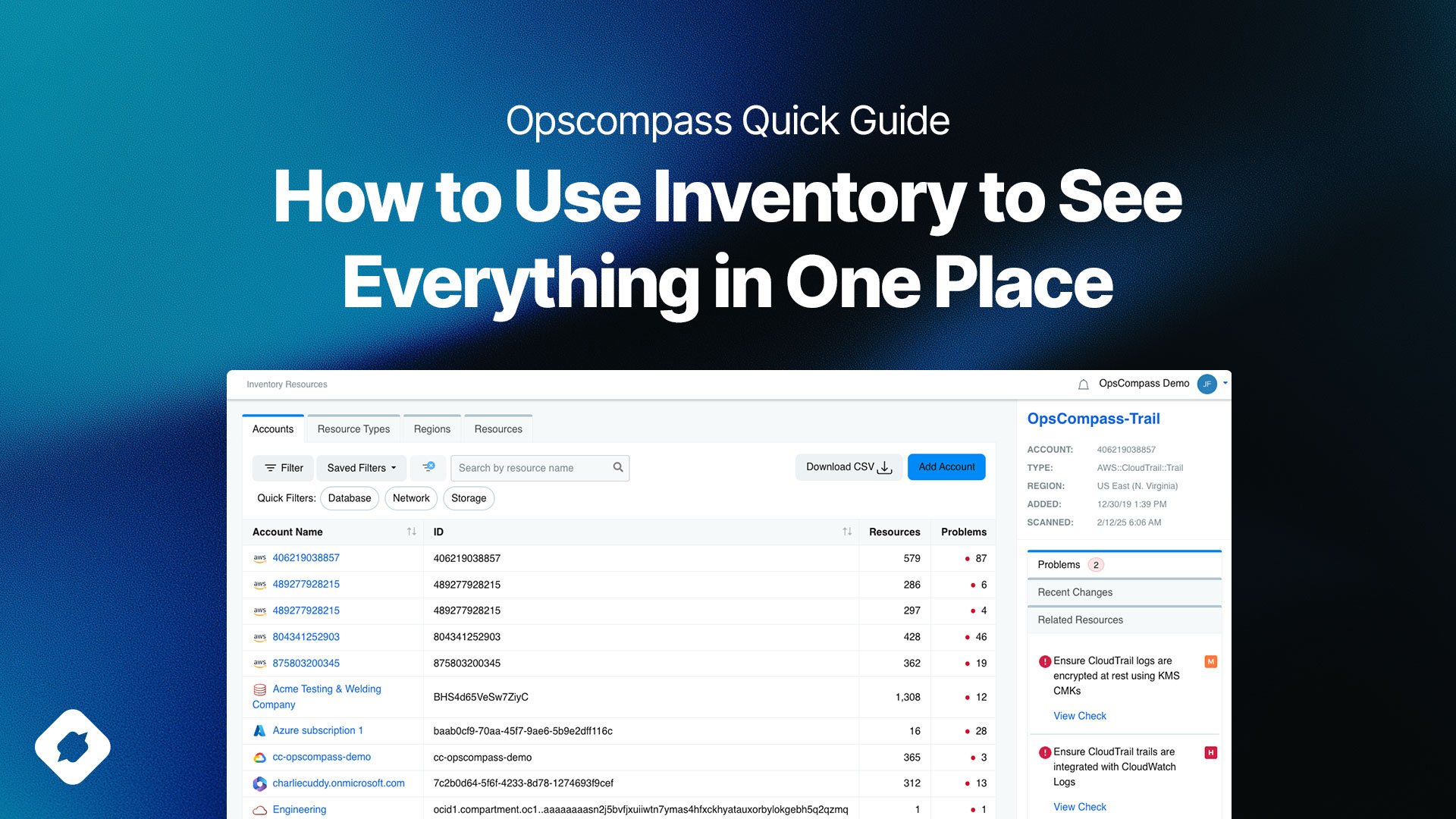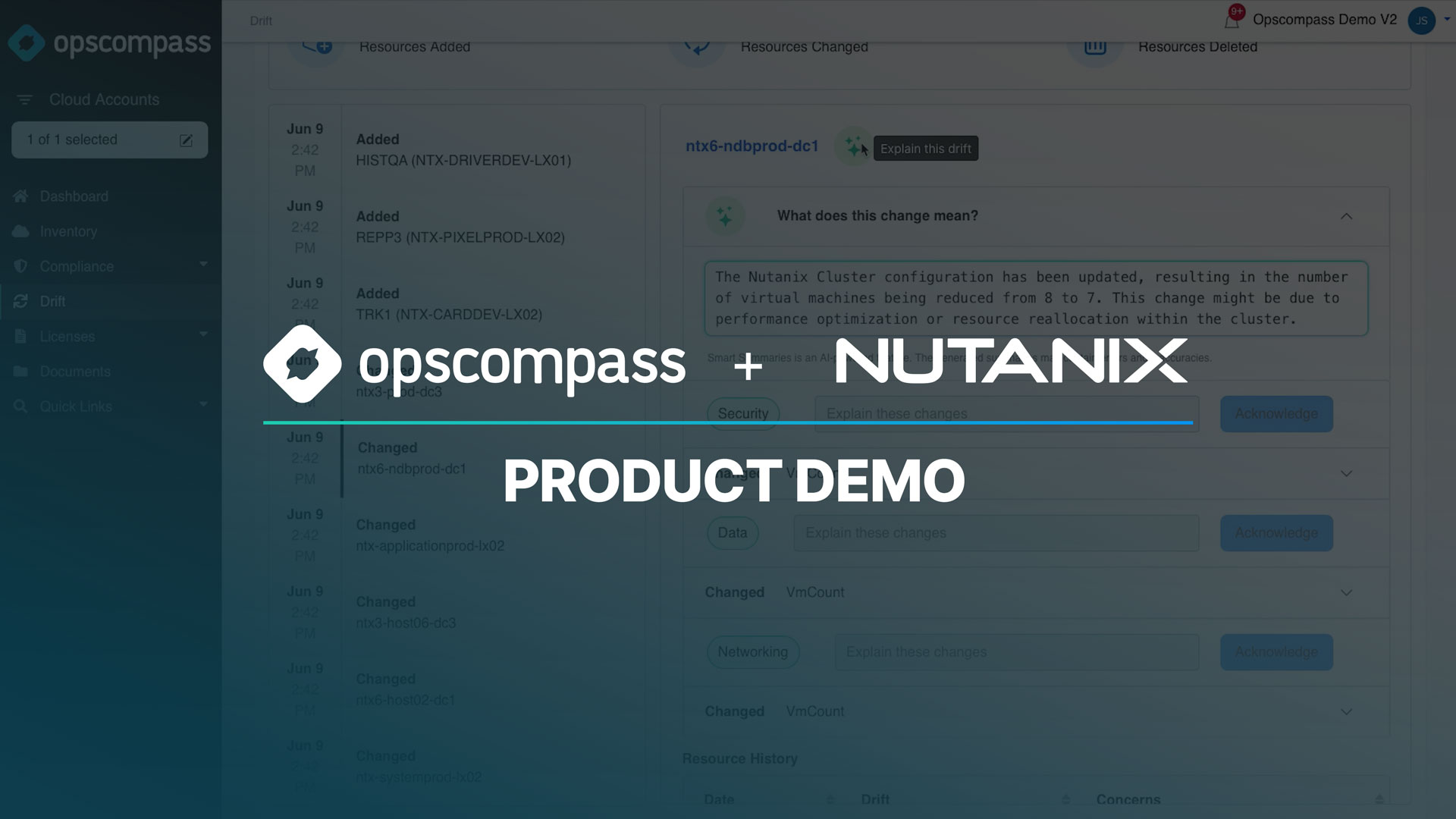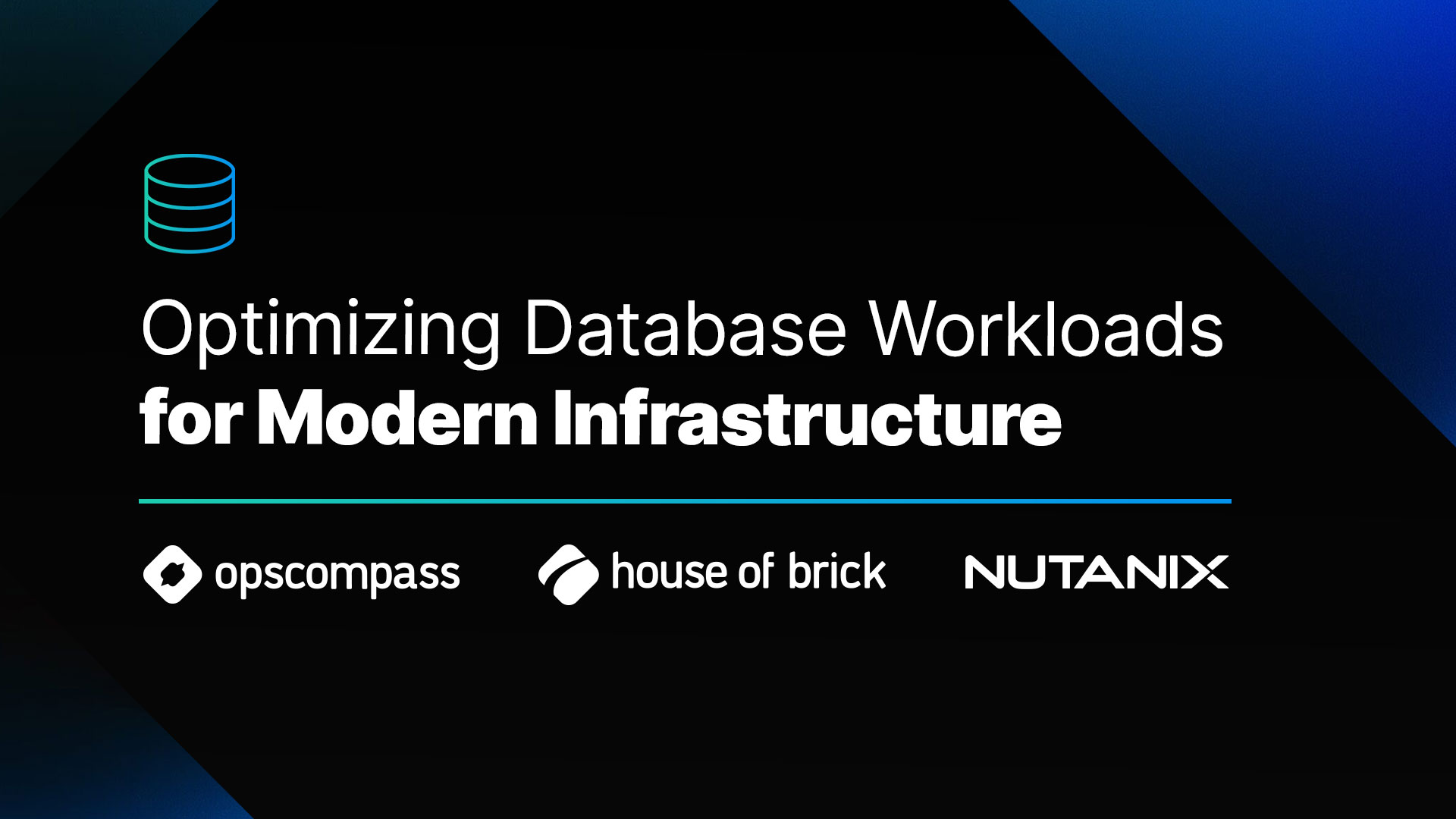Table of Contents
As a DBA, few things are more stressful than an Oracle licensing audit. Between managing enterprise databases and keeping systems running smoothly, tracking licensing compliance often falls on your shoulders. When audit time comes, the pressure to provide accurate usage data while maintaining daily operations can be overwhelming.
We’ve built Opscompass to give DBAs the visibility and control needed to manage Oracle licensing effectively, letting you focus on what matters most – keeping your databases performing optimally.
Real DBA Challenges in Oracle Licensing Audits
The Feature Usage Nightmare
Oracle Enterprise Edition features carry a separate license liability. Every DBA knows the scenario: developers enable Enterprise Edition features on Standard Edition databases or testing environments and accidentally use features like Partitioning or Advanced Compression. Without constant monitoring, these licensing violations can go undetected until it’s too time-consuming to fix or until the audit notices arrives.
The Multi-Environment Puzzle
Managing databases across on-premises and cloud environments means juggling different licensing metrics and deployment rules. Keeping track of processor counts, core factors, and NUP minimums across platforms can become a full-time job.
Configuration Control at Scale
When you’re managing hundreds of databases, maintaining standardized configurations becomes nearly impossible. One misconfigured parameter or enabled feature can trigger significant compliance issues.
How Opscompass Makes Your Life Easier
Comprehensive Environment Visibility
Get a single-pane view of all your Oracle databases, regardless of where they run. Track Edition types, enabled features, and actual usage patterns across your entire estate.
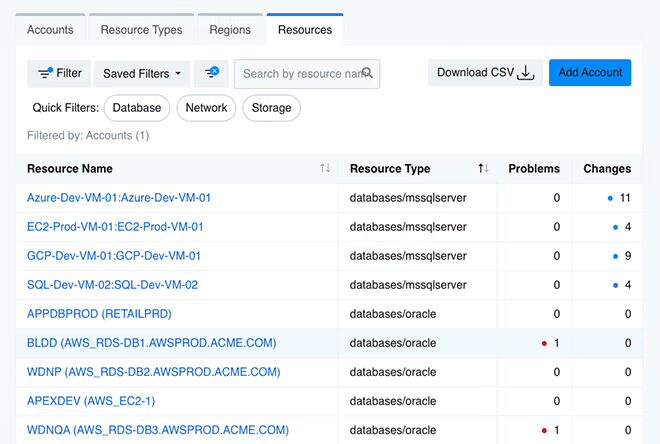
Real-Time Configuration Monitoring
Stop worrying about unauthorized feature usage. Opscompass alerts you when any database configuration changes could impact licensing, letting you address issues before they become audit problems.
Optimization Recommendations Based on Real Usage
Identify databases that could be downgraded to Standard Edition or instances where features aren’t being used but are licensed. Make data-driven decisions about your Oracle footprint.
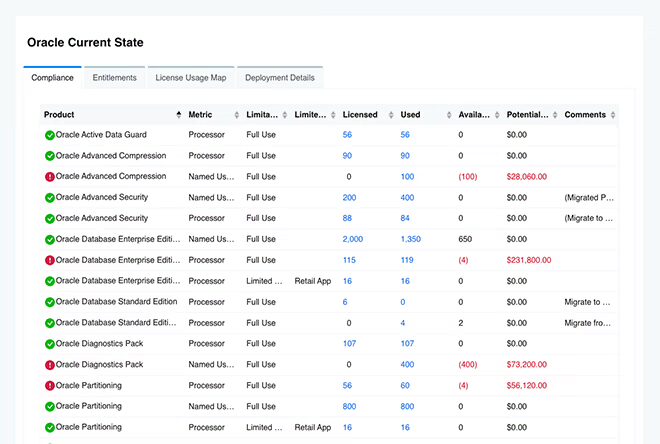
Automated License Tracking
Stop maintaining spreadsheets of database license entitlements and deployments. Opscompass automatically tracks your Oracle assets, providing up-to-date licensing positions whenever you need them.
The DBA Benefits of Using Opscompass
- More Time for Critical Tasks: Reduce hours spent on licensing documentation and audit preparation.
- Confident Decision-Making: Know exactly which features are being used and where.
- Proactive Risk Management: Catch licensing issues before they become audit findings.
- Better Capacity Planning: Use real data to justify licensing decisions to management.
Understanding Oracle License Compliance Financial Impacts
Opscompass provides continuous Oracle license compliance monitoring across all major platforms where Oracle software is deployed, including VMware, Nutanix, AWS, Azure, Google Cloud, and OCI. During Oracle audits, organizations often face significant financial implications for unlicensed software usage. It’s worth noting that while penalties for under-licensing are common, organizations rarely receive credits for over-licensed products, even when license policies were misunderstood.
Let’s examine potential financial implications using a standard 4 CPU server scenario:
| Example Oracle License Violation | Oracle Product(s) | List License Fee(s) | Est # of CPUs | Extended List Price |
|---|---|---|---|---|
| Customer is not licensed correctly for Oracle RAC Cluster | Oracle Enterprise Edition Oracle RAC |
$47,500 $23,000 |
4 4 |
$190,000 $92,000 |
| Customer DBA uses Advanced Compression & Tuning Packs but did not purchase licenses | Oracle Advanced Compression Oracle Tuning Pack |
$11,500 $5,000 |
4 4 |
$46,000 $20,000 |
| Customer purchases unnecessary database licenses on Exadata deployment | Oracle Enterprise Edition Database | $47,500 | 4 | $190,000 |
| Customer does not understand Oracle DR policies and purchases unnecessary database licenses for DataGuard use | Oracle Enterprise Edition Database Active Data Guard |
$47,500 $11,500 |
4 4 |
$190,000 $46,000 |
Additional Cost Considerations:
- Software Update License & Support (SULS) fees: 22% of the base license cost for the first year
- Annual SULS renewal fees may increase up to 5% year over year
- Retroactive compliance fees dating back to initial deployment of unlicensed software
- List prices shown may be adjusted through Oracle Corporation or authorized partners
Proactive Risk Management
Understanding these potential costs highlights the importance of proactive license management. Using automated tools to monitor license usage isn’t just about compliance—it’s about protecting your organization from unexpected financial exposure and optimizing your Oracle investment.
Let’s Explore Opscompass Together
Common DBA Questions About Oracle Licensing
How does Opscompass handle Oracle RAC environments?
Opscompass understands RAC deployments and correctly accounts for licensing requirements across cluster nodes.
Can Opscompass detect Option and Pack usage?
Yes, Opscompass monitors for usage of all Oracle options and packs, including often-overlooked features like Advanced Compression or Tuning Pack.
Does Opscompass support Exadata environments?
Yes, Opscompass understands Exadata-specific licensing rules and helps track compute node licensing requirements. In an Exadata, storage cells do not require database licenses.
How does Opscompass handle disaster recovery environments?
Opscompass helps track DataGuard and GoldenGate databases and ensures proper licensing for DR configurations based on Oracle’s policies. Opscompass also tracks public cloud DR configurations like AWS RDS Multi-AZ.
